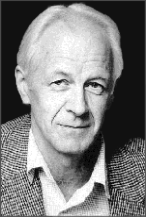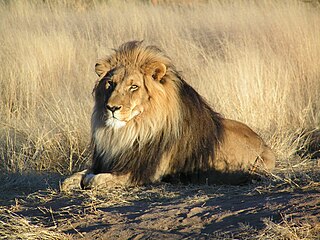Related Research Articles

Ecology is the study of the relationships between living organisms, including humans, and their physical environment. Ecology considers organisms at the individual, population, community, ecosystem, and biosphere level. Ecology overlaps with the closely related sciences of biogeography, evolutionary biology, genetics, ethology, and natural history. Ecology is a branch of biology, and it is not synonymous with environmentalism.

Human ecology is an interdisciplinary and transdisciplinary study of the relationship between humans and their natural, social, and built environments. The philosophy and study of human ecology has a diffuse history with advancements in ecology, geography, sociology, psychology, anthropology, zoology, epidemiology, public health, and home economics, among others.
In environmental philosophy, environmental ethics is an established field of practical philosophy "which reconstructs the essential types of argumentation that can be made for protecting natural entities and the sustainable use of natural resources." The main competing paradigms are anthropocentrism, physiocentrism, and theocentrism. Environmental ethics exerts influence on a large range of disciplines including environmental law, environmental sociology, ecotheology, ecological economics, ecology and environmental geography.

Landscape ecology is the science of studying and improving relationships between ecological processes in the environment and particular ecosystems. This is done within a variety of landscape scales, development spatial patterns, and organizational levels of research and policy. Concisely, landscape ecology can be described as the science of "landscape diversity" as the synergetic result of biodiversity and geodiversity.

The New York State College of Human Ecologyat Cornell University (HumEc) is a statutory college and one of four New York State contract colleges located on the Cornell University campus in Ithaca, New York. The College of Human Ecology is a compilation of area of study, such as design, design thinking, consumer science, nutrition, health economics, public policy, human development and textiles, each through the perspective of human ecology.

Allan Charles Wilson was a Professor of Biochemistry at the University of California, Berkeley, a pioneer in the use of molecular approaches to understand evolutionary change and reconstruct phylogenies, and a revolutionary contributor to the study of human evolution. He was one of the most controversial figures in post-war biology; his work attracted a great deal of attention both from within and outside the academic world. He is the only New Zealander to have won the MacArthur Fellowship.

Population ecology is a sub-field of ecology that deals with the dynamics of species populations and how these populations interact with the environment, such as birth and death rates, and by immigration and emigration.

Charles Sutherland Elton was an English zoologist and animal ecologist. He is associated with the development of population and community ecology, including studies of invasive organisms.

An apex predator, also known as a top predator, is a predator at the top of a food chain, without natural predators.
Ecocentrism is a term used by environmental philosophers and ecologists to denote a nature-centered, as opposed to human-centered, system of values. The justification for ecocentrism usually consists in an ontological belief and subsequent ethical claim. The ontological belief denies that there are any existential divisions between human and non-human nature sufficient to claim that humans are either (a) the sole bearers of intrinsic value or (b) possess greater intrinsic value than non-human nature. Thus the subsequent ethical claim is for an equality of intrinsic value across human and non-human nature, or biospherical egalitarianism.

Systems ecology is an interdisciplinary field of ecology, a subset of Earth system science, that takes a holistic approach to the study of ecological systems, especially ecosystems. Systems ecology can be seen as an application of general systems theory to ecology. Central to the systems ecology approach is the idea that an ecosystem is a complex system exhibiting emergent properties. Systems ecology focuses on interactions and transactions within and between biological and ecological systems, and is especially concerned with the way the functioning of ecosystems can be influenced by human interventions. It uses and extends concepts from thermodynamics and develops other macroscopic descriptions of complex systems.
CEPT University, formerly the Centre for Environmental Planning and Technology, is an academic institution located near university area in Ahmedabad, India offering undergraduate, postgraduate and doctoral programmes in areas of natural and developed environment of human society and related disciplines.

Madhav Dhananjaya Gadgil is an Indian ecologist, academic, writer, columnist and the founder of the Centre for Ecological Sciences, a research forum under the aegis of the Indian Institute of Science. He is a former member of the Scientific Advisory Council to the Prime Minister of India and the Head of the Western Ghats Ecology Expert Panel (WGEEP) of 2010, popularly known as the Gadgil Commission. He is a recipient of the Volvo Environment Prize and the Tyler Prize for Environmental Achievement. The Government of India awarded him the fourth highest civilian award of the Padma Shri in 1981 and followed it up with the third highest award of the Padma Bhushan in 2006.

The Indian leopard is a leopard subspecies widely distributed on the Indian subcontinent. The species Panthera pardus is listed as Vulnerable on the IUCN Red List because populations have declined following habitat loss and fragmentation, poaching for the illegal trade of skins and body parts, and persecution due to conflict situations. The Indian leopard is one of the big cats occurring on the Indian subcontinent, along with the Asiatic lion, Bengal tiger, snow leopard and clouded leopard. In 2014, a national census of leopards around tiger habitats was carried out in India except the northeast. 7,910 individuals were estimated in surveyed areas and a national total of 12,000-14,000 speculated.

The trophic level of an organism is the position it occupies in a food web. A food chain is a succession of organisms that eat other organisms and may, in turn, be eaten themselves. The trophic level of an organism is the number of steps it is from the start of the chain. A food web starts at trophic level 1 with primary producers such as plants, can move to herbivores at level 2, carnivores at level 3 or higher, and typically finish with apex predators at level 4 or 5. The path along the chain can form either a one-way flow or a food "web". Ecological communities with higher biodiversity form more complex trophic paths.

Deep ecology is an environmental philosophy that promotes the inherent worth of all living beings regardless of their instrumental utility to human needs, and the restructuring of modern human societies in accordance with such ideas.
Ecosemiotics is a branch of semiotics in its intersection with human ecology, ecological anthropology and ecocriticism. It studies sign processes in culture, which relate to other living beings, communities, and landscapes. Ecosemiotics also deals with sign-mediated aspects of ecosystems.

Sutton Ecology Centre Grounds is a 1.3 hectare Local Nature Reserve and Site of Borough Importance for Nature Conservation, Grade 1, in Carshalton in the London Borough of Sutton. It is owned by Sutton Council and managed by the Council together with the Friends of Sutton Ecology Centre.
David Fowler,, is a British environmental physicist, recognized as an authority on atmospheric pollution. He specializes in micrometeorology, the land-atmosphere exchange of trace gases and particles, and the effects of pollutants on vegetation.
References
- ↑ "History of the CHE | Centre for Human Ecology". Archived from the original on 4 March 2013. Retrieved 11 March 2013.